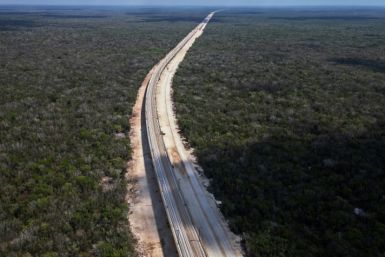Australian Stock Market Report – Afternoon 5/8/2012
MARKET CLOSE
(4.30pm AEST)
The Australian sharemarket improved slightly today, with the All Ordinaries Index (XAO) rising by 0.3 pct or 14.3 pts to 4375.9. Stocks were up by as much as 0.6 pct, but pulled back following some worse than expected economic data issued after 1.5 hours of trade. Yesterday was the biggest daily pullback for the local market in almost five months.
Investors overnight seemed to put concerns of the European elections and the issues in Greece behind them for the time being. Better than expected economic news out of the U.S last night served as a timely distraction. Americans borrowed twice as much as expected in March which tend to be a sign of confidence that results in increased spending.
The political situation in Greece still seems unstable however. Its two major parties secured less than 35 pct of the Presidential vote. The conservative party, which gained the most votes said it failed to form a coalition and has increased the likelihood of another election and an exit from the Eurozone.
The mining sector lost a little ground today, but the two largest resource companies, BHP Billiton (BHP) and Rio Tinto (RIO) both gained by a little over 0.3 pct. Fortescue Metals Group (FMG) improved by a more impressive 2.88 pct or 15 cents to $5.35 (but fell by close to 6 pct yesterday).
The price of oil remains weak and currently costs US$97 a barrel, which is 8 pct lower than this time last week. The fall in its price has been partly off the back of ample oil supply. Inventories in the U.S are standing at their highest levels since September 1990.
Australia's major banks ended mostly stronger today, with National Australia Bank (NAB) the only loser. NAB shares eased by 0.32 pct or 8 cents to $24.63. Westpac (WBC) rose by 0.48 pct or 11 cents to $22.83, while both Commonwealth Bank of Australia (CBA) and ANZ Banking Group (ANZ) edged higher by only 0.04 pct.
OneSteel (OST) held a meeting with shareholders today to vote on a name change. 97 pct of shareholders voted in favour of the name change. Starting July 2, OST will go by the name of Arrium Limited. The business is no longer only a steel producer, so according to management, a new name would be a better fit for the company.
Whitehaven Coal (WHC), one of Australia's larger coal miners rose by 2.4 pct today after falling sharply yesterday. On Monday, WHC made a more than $140 million bid for NSW based coal explorer, Coalworks (CWK) which is up more than 17 pct this week.
Leighton Holdings (LEI), reconfirmed profit guidance for the 2012 calendar year of between $400 and $450 million. Losses from the Victorian desalination project and the Brisbane Airport Link have hurt the company over the first quarter of the year. LEI has been awarded close to $700 million of work in Australia and Indonesia. LEI is one of the country's biggest construction companies. LEI shares fell 1.19 pct or 23 cents to $19.02.
Australia's largest electricity company, Origin Energy (ORG) said it is looking at developing a 547-megawatt Wind Farm in Victoria. This could cost the company around $900 million. ORG shares eased by 0.54 pct or 7 cents to $12.98.
On the economic front, Australia recorded its third consecutive trade deficit in March of $1.6 billion. This was worse than market expectations and also has driven our dollar lower. For those who do not know, a trade deficit basically means that we imported more goods than we exported overseas. Coal and iron ore are Australia's two most important exports and make up just under half of all goods sold overseas (coal is the biggest export).
Oil is Australia's biggest import and makes up almost 20 pct of all goods brought into the country (includes both refined and unrefined crude oil).
Commsec Economist, Savanth Sebastian said that "Australia has notched up its largest trade deficit in 2½ years and it was due to a combination of factors. Not only did we import a lot more goods from overseas but volumes and prices of key mining exports added to the weaker result. In fact over the March quarter the trade deficit totalled nearly $3.2 billion - the largest quarterly deficit since December 2009."
The stronger Australian dollar (AUD) has also been a problem for Australian trade. Just seven months ago, the AUD hit a low of US95.3 cents and hit a high of US108 cents in February and again at the start of March. Mr Sebastian said that "The strength of the Australian dollar has been a key driver in depressing exports and increasing the attractiveness of cheaper imports. In the latest result imports far outpaced the growth in exports surging by just shy of six per cent in March, while exports were more sedate growing at just over 1 per cent."
Retail spending came in higher than expected in March, with Australians spending a little more freely at the retail level. Mr Sebastian said that "Interestingly the six per cent surge in imports of consumption good in March resonates with the pickup in retail activity. It seems that the rise in retail activity over the March quarter has prompted importers to replenish stock. And if confidence levels improve (given the latest rate cut) and consumer spending gains traction it is likely to boost imports even further."
Tonight, all eyes will be on the Federal Budget release at 7.30pm (AEST). Treasurer Wayne Swan is likely to announce a small budget surplus to meet political promises. For a surplus to be recorded revenues would need to grow by around 11 pct and an additional $4-$5 billion of savings would need to be found.
No major economic data was released in the Asia-Pacific region today. Tomorrow, Japan will issue its leading indicators report at 3pm (AEST). This was designed to predict the direction of the economy, but it tends to not have a significant impact because the indicators used have already been released in the past.
In Europe tonight, the European Central Bank's (ECB) President, Mario Draghi is due to speak in Frankfurt.
No major economic data is expected in the U.S tonight.
Volume of shares traded came in at 1.88 billion today, worth $4.71 billion. 489 shares were up, 500 were weaker and 386 ended unchanged.
At 4.30pm AEST on the Sydney Futures Exchange, the ASX24 futures contract is down 0.16 pct or 7 pts to 4292.
Due to daylight savings, most major European markets are now trading between 5pm (AEST) and 1.30am (AEST). Stocks are expected to open a little lower tonight.
Dow Futures are lower, indicating that U.S stocks could open in the red tonight. Due to daylight savings taking place in the second week of March in North America and the end of daylight savings in Australia, U.S markets will now be trading between 11.30pm (AEST) and 6am (AEST).
Turning to currencies, the Australian dollar (AUD) continues to remain weak against the greenback and buys US101.6 cents. The AUD is currently trading at £62.9 pence and €78 cents. The AUD is trading at its lowest level against the greenback so far in the 2012 calendar year.
[Kick off your trading day with our newsletter]
More from IBT Markets:
Follow us on Facebook
Follow us on Twitter
Subscribe to get this delivered to your inbox daily






